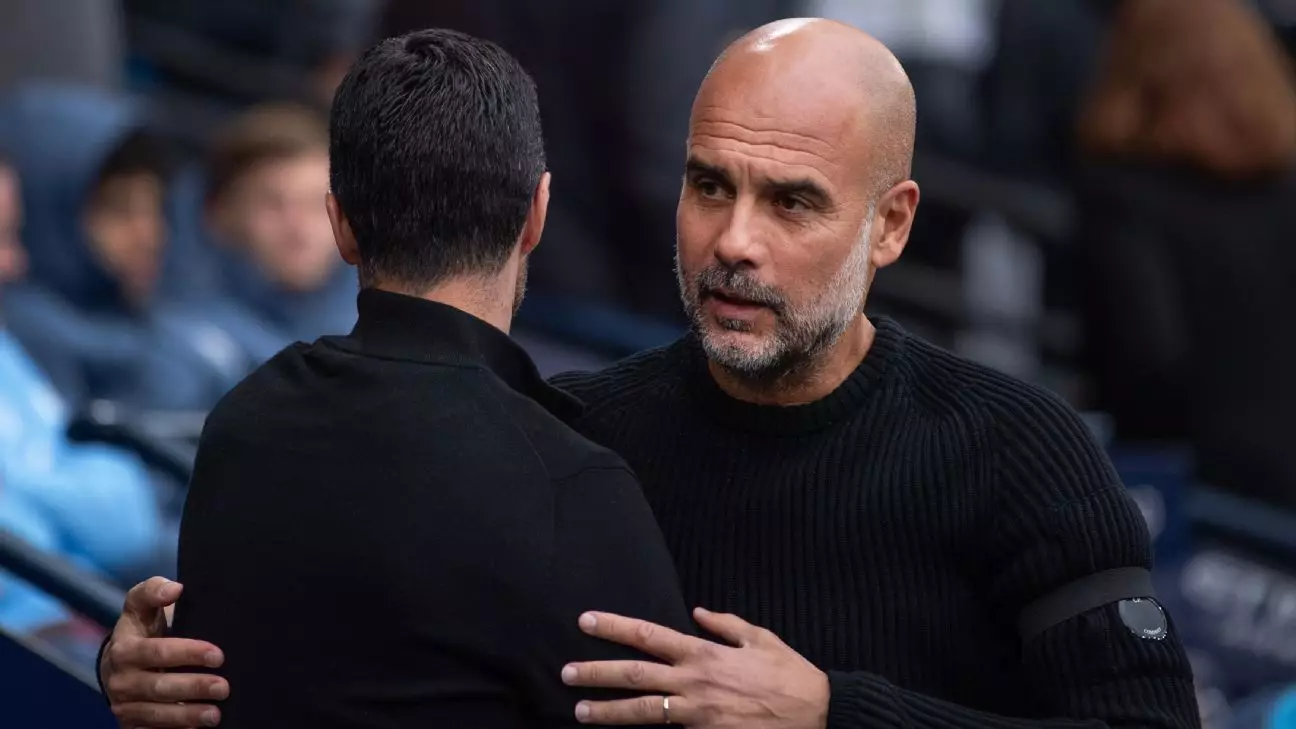The recent exchange between Pep Guardiola and Mikel Arteta has thrown the spotlight on the heightened tensions between Manchester City and Arsenal, two teams at the forefront of Premier League competition. Following a thrilling 2-2 draw at the Etihad Stadium, Arteta’s insinuation that he possesses inside knowledge about City’s tactics stirred the pot, prompting Guardiola’s sharp retort for clarity. This discourse not only highlights the competitive spirit between two prominent coaches but also reflects the broader narrative of rivalry that is so integral to the Premier League.
When Arteta cryptically claimed he was privy to information from his four years at City, it suggested an understanding of tactics that may, in essence, border on the controversial. Guardiola’s challenge for greater clarity points to the complexity inherent in such rivalry. His request for Arteta to elucidate what he meant by his comments reveals an underlying tension—an unspoken accusation that Arteta is aware of questionable practices that could be at play. This exchange raises deeper questions about the ethical boundaries in football tactics, especially when such insinuations may carry significant consequences for the involved parties.
The fierce competition for Premier League supremacy has transformed the relationship between Manchester City and Arsenal into one of mutual disdain and urgency. Both clubs have collided in their pursuit of domestic glory over recent seasons, escalating emotions on and off the pitch. This ongoing rivalry is further intensified by moments such as Erling Haaland throwing the ball at Gabriel following a nail-biting equalizer, an incident caught on camera that encapsulates the heart-pounding drama of modern football. Each rivalry battle amplifies the stakes, encompassing not just the players, but the coaches and fans alike.
Guardiola’s acceptance of a more combative approach—describing the rivalry as a “war” on the pitch—provides an insight into the emotional landscape of top-flight football. He acknowledges that, when confronted, the natural response is one of provocation—not just in terms of gameplay but also in psychological warfare. This recognition of emotional intensity reveals how vital it is for teams to maintain psychological fortitude amidst intense competition. Understanding that the emotions can become almost uncontrollable points to an innate human element in sports, where strategy and sentiment intertwine significantly.
Ultimately, the confrontation between Guardiola and Arteta serves as a reminder of how rivalries can influence the broader football narrative. While both coaches strive for success, their interactions reflect the complexities of modern football where tactics, ethics, and emotions coexist. As the dust settles on these fiery exchanges, it’s evident that rivalry is an inherent aspect of the sport, with each encounter defining the futures of both teams in ways that go beyond mere points on a table. As Arsenal and Manchester City continue to vie for dominance, the implications of their interactions will undoubtedly shape the ongoing saga of Premier League football.

Leave a Reply